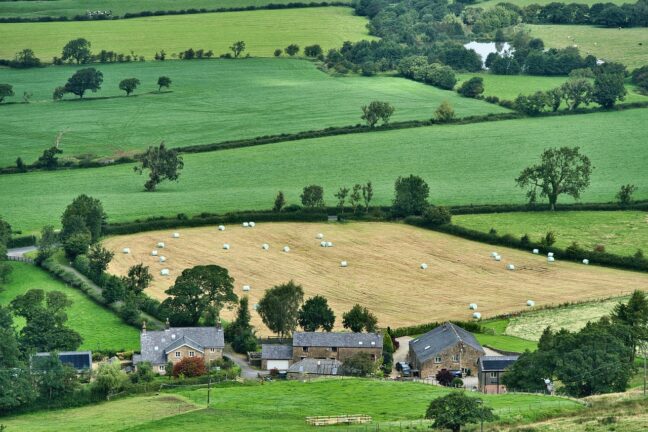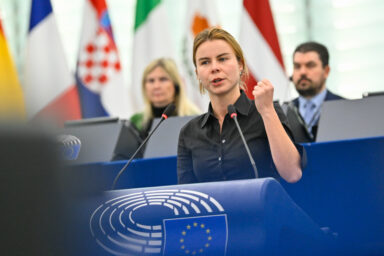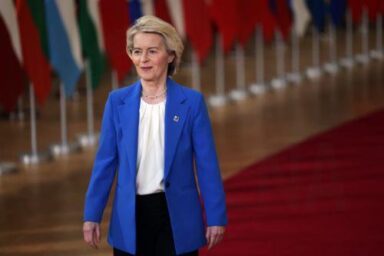On Monday, the European Parliament’s Agriculture and Rural Development Committee (AGRI) adopted its report on the future of the EU’s Common Agricultural Policy (CAP) post-2027. While the report calls for improvements and modernisation, it draws a firm line on funding—effectively telling the European Commission to leave the system as it is.
The report was adopted with 29 votes in favour, nine against, and eight abstentions. In doing so, the committee reaffirmed its support for the CAP’s unique status and long-standing two-pillar structure, comprising direct income support to farmers as well as rural development and environmental programmes. The CAP has long counted for roughly a third of the overall EU budget, and agriculture policy remains one of the main cornerstones of European integration.
Back to the 1960s
There is, not surprisingly, strong resistance in the farming and agriculture sectors to merging the CAP budget into a single EU fund. Critics argue the policy is too central to food security and long-term stability. No one wants to risk the gradual siphoning off of funds at a time when the EU is under pressure to reallocate resources to security. This, mainly in response to Russia’s ongoing threat following its 2022 invasion of Ukraine.
Speaking at a press conference in Brussels on Tuesday, the report’s rapporteur, MEP Carmen Crespo Díaz (EPP/ES), underscored the importance of the CAP, calling it the EU’s “heart and soul,” adding that the report was against major changes to the funding system. Ms Crespo Díaz even mentioned the CAP founding back in 1962. Presumably, it has worked for a long time for a reason.
“There is no reason farmers should suffer anguish or uncertainty,” the MEP said, adding that the CAP was “too important to roll into any other funds.” She also summed up the report’s major priorities: “We need a CAP that strengthens food supply, supports rural communities, and empowers farmers through innovation, generational renewal, and fair market conditions. But we strongly reject any attempts to nationalise the CAP or merge its funding with other EU instruments. It must remain a true common policy with dedicated funds and independent pillars, ensuring equal support for all European farmers.”
You might be interested
If anything, the MEP suggested, an increase in funding was necessary—not less.
What the report recommends
“Reducing the administrative burden for farmers must be one of the CAP’s guiding principles,” the body said in a press release Tuesday. In it, MEPs called for an “incentive-based system for farmers to achieve environmental and social objectives.” According to the release, eco-schemes should remain voluntary and come with remuneration. Good agricultural and environmental conditions (GAEC) must consider existing farming practices. Access to innovative and digital tools is essential for farmers to improve sustainability, increase income, and reduce paperwork.
There is no reason farmers should suffer anguish or uncertainty. MEP Carmen Crespo Díaz
To ease farm inspections, monitoring of CAP fund use should rely on satellite imagery and self-certification within a centralised electronic reporting system.
Generational renewal is another major concern. With nearly 58 per cent of EU farmers over 55 years old and only six per cent under 35, the committee effectively called for increased CAP funding and enhanced tax and loan incentives to lower barriers for new farmers entering the field.
MEP Carmen Crespo Díaz again: “Let us be clear. We need to support active farmers, professional farmers, regardless of the size of their holdings and of course we need to pay special attention to the most vulnerable. This CAP needs to be more modern and competitive and simplified. Eleven percent of farmers are under the age of 40. We need to look into supporting young farmers in Europe as well as water and water management, another challenge for the future.”
Lastly, MEPs urged harmonised EU-wide labelling for agri-food products to help over 70 per cent of consumers who base buying decisions on packaging information. This, the rapporteur suggested, would include clear details on origin, quality, and production standards, preventing consumer confusion.
Plenary session on Thursday
The report now heads to the full European Parliament plenary session scheduled for Thursday, 10 July. MEPs will debate – but not vote – on the AGRI Committee’s recommendations. The debate will continue, no doubt, to shape the direction of the CAP post-2027, particularly regarding funding structures and priorities. Strong opinions from different quarters means that the debate will be closely watched.











